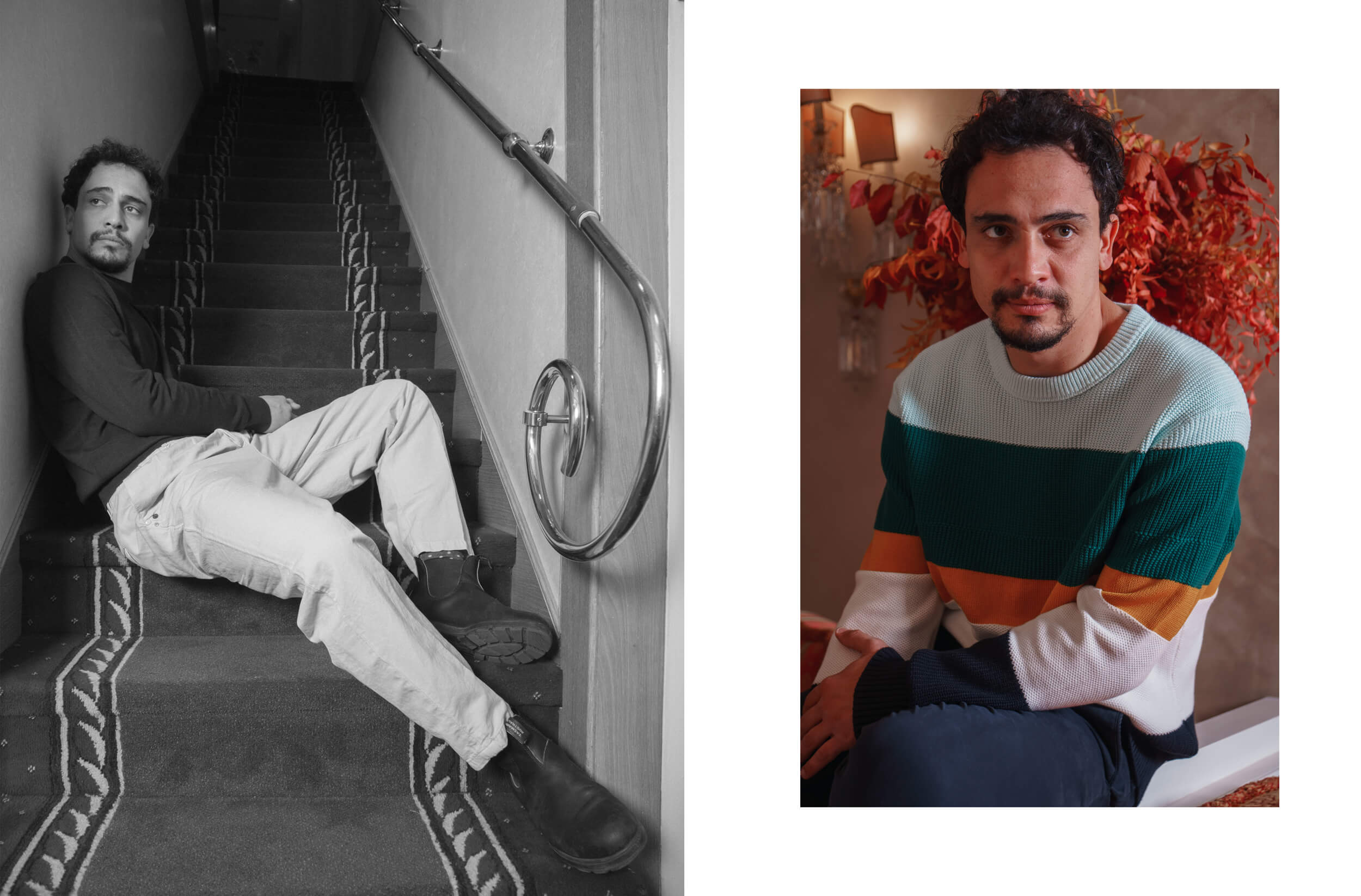The protagonist of the new TV series currently airing on Italian network Rai 1 “Chiamami Ancora Amore,” Simone Liberati tells us about himself and the importance of sincerity in dramatic narration. After starring in a series of successful movies and TV shows like “Suburra,” “La profezia dell’armadillo” and “Petra,” the Roman actor has tested his ability to self-identify and empathize with a family story that tells, without frills, the multiformity of love, and for this reason appliable to everyone’s lives. In our interview with Simone, we’ve had a taste of his desire to experiment, tell honest stories mirroring contemporary times, and his trust in fate and its undeniable power on the course of life and career.
What’s your first cinema memory?
I don’t remember the first films I’ve seen at the cinema, they were probably animated films, but I remember a great joy, a great emotion. For us, when my parents used to take us to the movies, it was like a party, a huge leisure time, it was really a gift. I loved queuing, waiting for the film, entering the huge theater, back then everything seemed bigger to me, so the immensely big, dark movie theater, the huge screen, the lights, the sounds, everything was extremely fascinating.
You’re the lead character in the TV series “Chiamami Ancora Amore,” currently airing on Italian network Rai 1. What was your first reaction when you read the script and processed the role you would have played? What was the first question you asked director Gianluca Maria Tavarelli and yourself?
Well, I read the script and soon got caught up in it, I was fascinated by it. I read it in one go because in this story I could sort of seeing the story of us all, even those who haven’t necessarily gone through separations, divorces in this way, the way they do, making war. However, the story, thanks to how it’s written, has the ability to somehow reach, I think, people’s hearts directly because it somehow asks you some questions, it forces you to look a bit within yourself in an introspective inquiry. So, once I finished playing “the reader” and became a performer, I had to focus on giving a soul and body to Enrico, and with Gianluca [Maria Tavarelli] we’d established from the very beginning that we needed to feel the story, first and foremost, and then embark on this journey with an open heart, staying as much as possible within the intimacy of the feelings, listening to each other and emotionally connecting, Greta [Scarano] and I.
Gianluca always nudged us in this direction, to stay in contact, feel the scene, live as much as possible the moment we were telling. It certainly was a very intense work, which led us to an in-depth analysis of the characters, whom we tried to enrich with as many nuances, experiences, stories as possible.
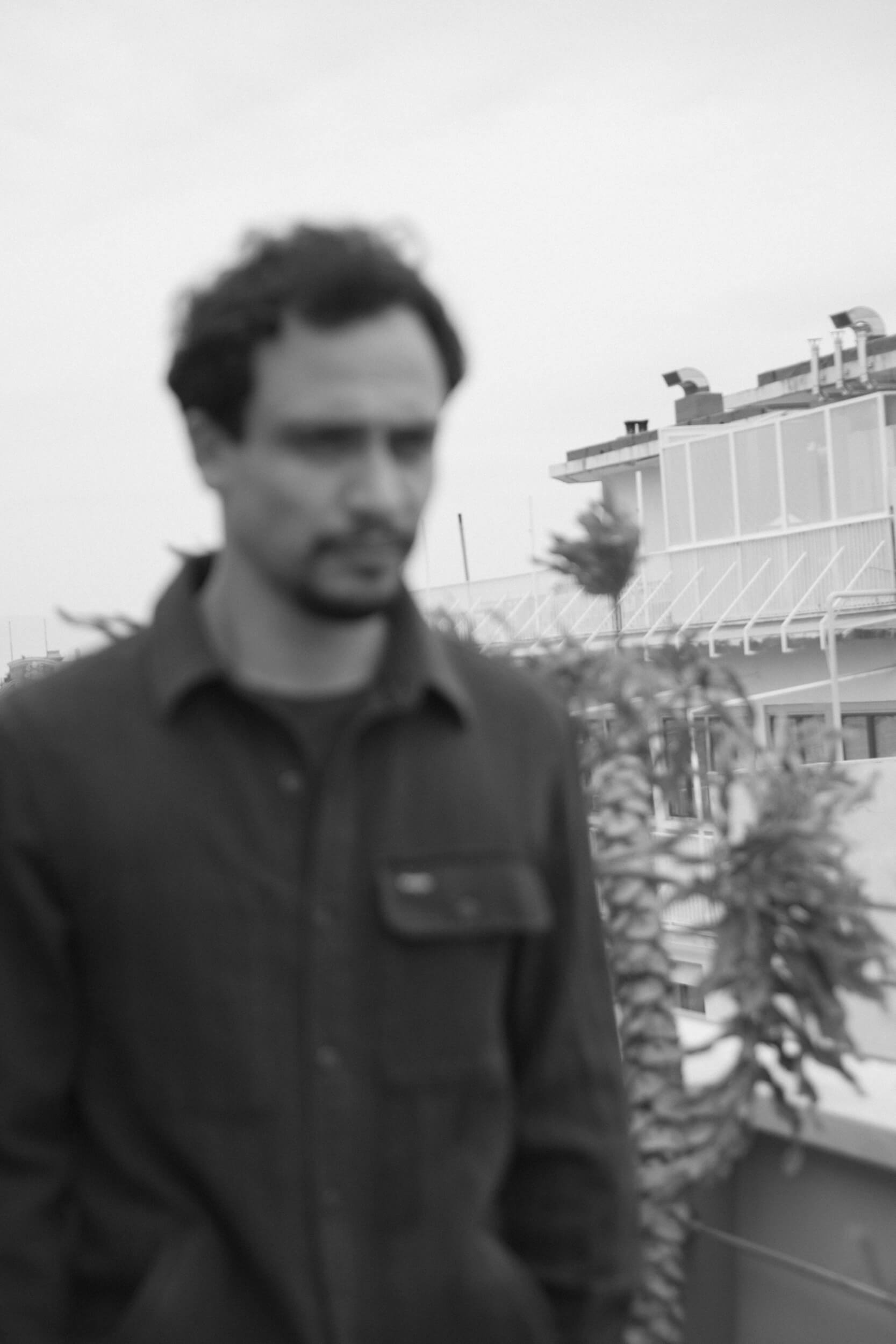
We meet your character, Enrico, at a breaking point in his life, when his wife Anna (Greta Scarano) decides to break up with him after eleven years of marriage, and they find themselves having to negotiate their son’s custody. What were the difficulties and challenges of playing your character and how did you face and overcome them? Is there, deep down, something of him in you?
The main challenge posed by this kind of story was definitely the work that had to be done on the years, on the passing of time. Anna and Enrico meet when they’re very young and they live a decade together during which many things happen: they live together, their relationship intensifies, their family evolves, they have a son, the son grows up, he becomes a boy, and little by little time changes them. So, to understand all these passages, these nuances, where and how these changes happen and what are their meaning and consequences, was the challenge of the interpretation of our roles. I could relate very much to the story, a story that, somehow, even though it doesn’t talk about me and my life, I felt mine. Again, I think this story has the ability to talk to people’s hearts in this sense, and that’s the reason why I think that many people could relate to the characters and what we tell. It’s a bit the story of all of us, it’s the story of a romantic relationship, and it goes through all the troubles of romantic relationships, so, these kinds of stories are somehow relatable, in large part, they can be applied to everyone’s lives.
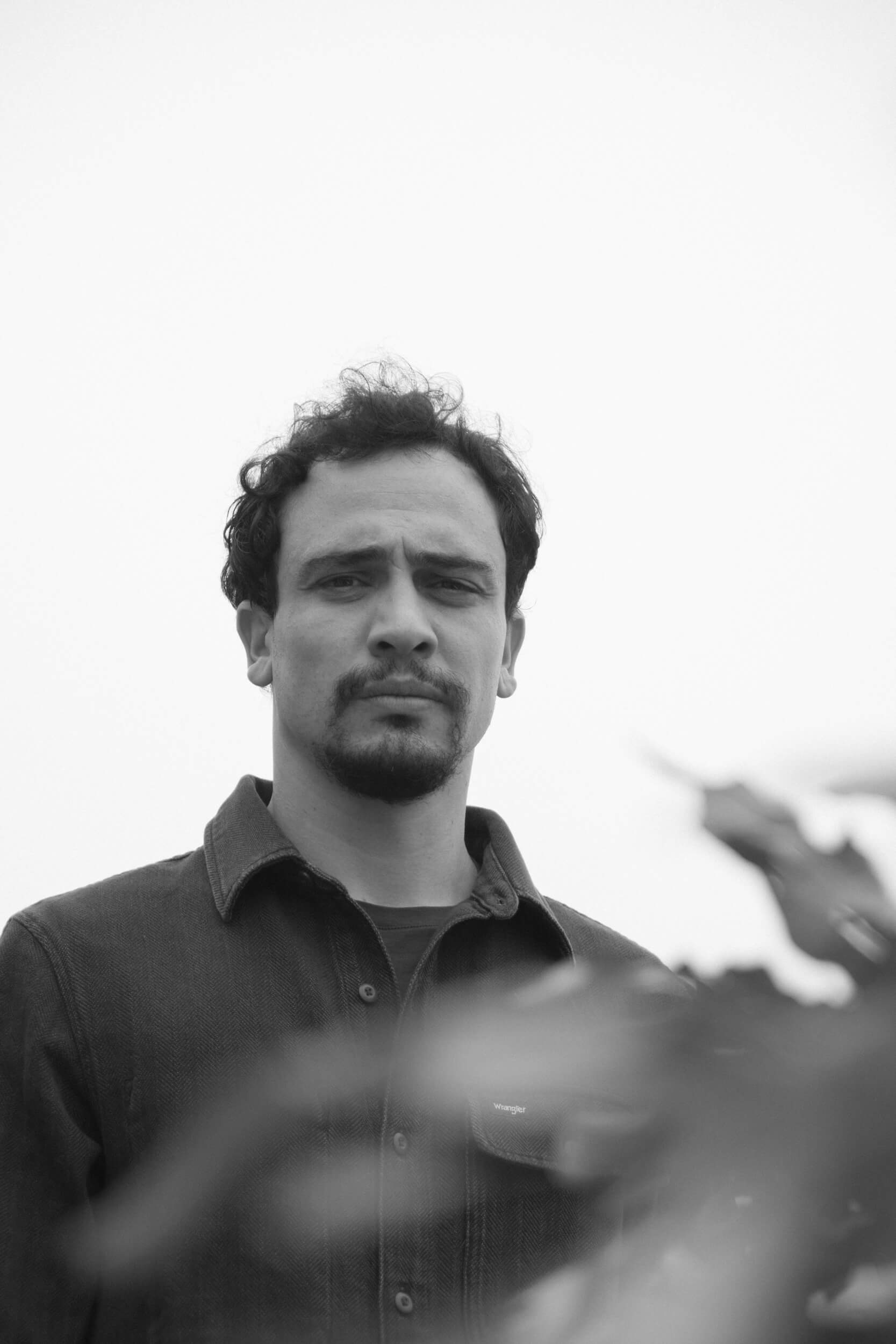
The TV series represents the multiple facets of love and its evolution, over time, especially when it gives birth to a family and all the responsibilities coming from children and marital life manifest themselves. How did you approach such a delicate topic? What were the events or realities that inspired you to explore, grasp and represent on the screen the truth of love that stays and love that wears off?
I haven’t had any actual approach with that kind of topic, to be honest; I approached Enrico’s situations and life, I focused on his life, I tried to give ordinariness and experience to his relationship with Anna and with their son, I tried to understand his strong desire of family and bond, I tried to understand the origins of his rage and ruthless resentment against Anna, to understand why he feels that way and what triggers off this reaction inside of him. This was the kind of approach I had to and tried to adopt. There were no particular real-life events I took inspiration from, or there was nothing that particularly inspired me for this; there wasn’t one in particular but there could be a thousand, given that love has in its nature the tendency to light up and wear off, in the sense that it’s quite of a multiform kind of feeling over time.
I think it’s important to underline that I didn’t relate with the topic, I didn’t face it, the topic comes out afterward; I focused on shaping a person who’s in love with his wife, with whom he decides to have a baby, so I focalized on his wills and desires.
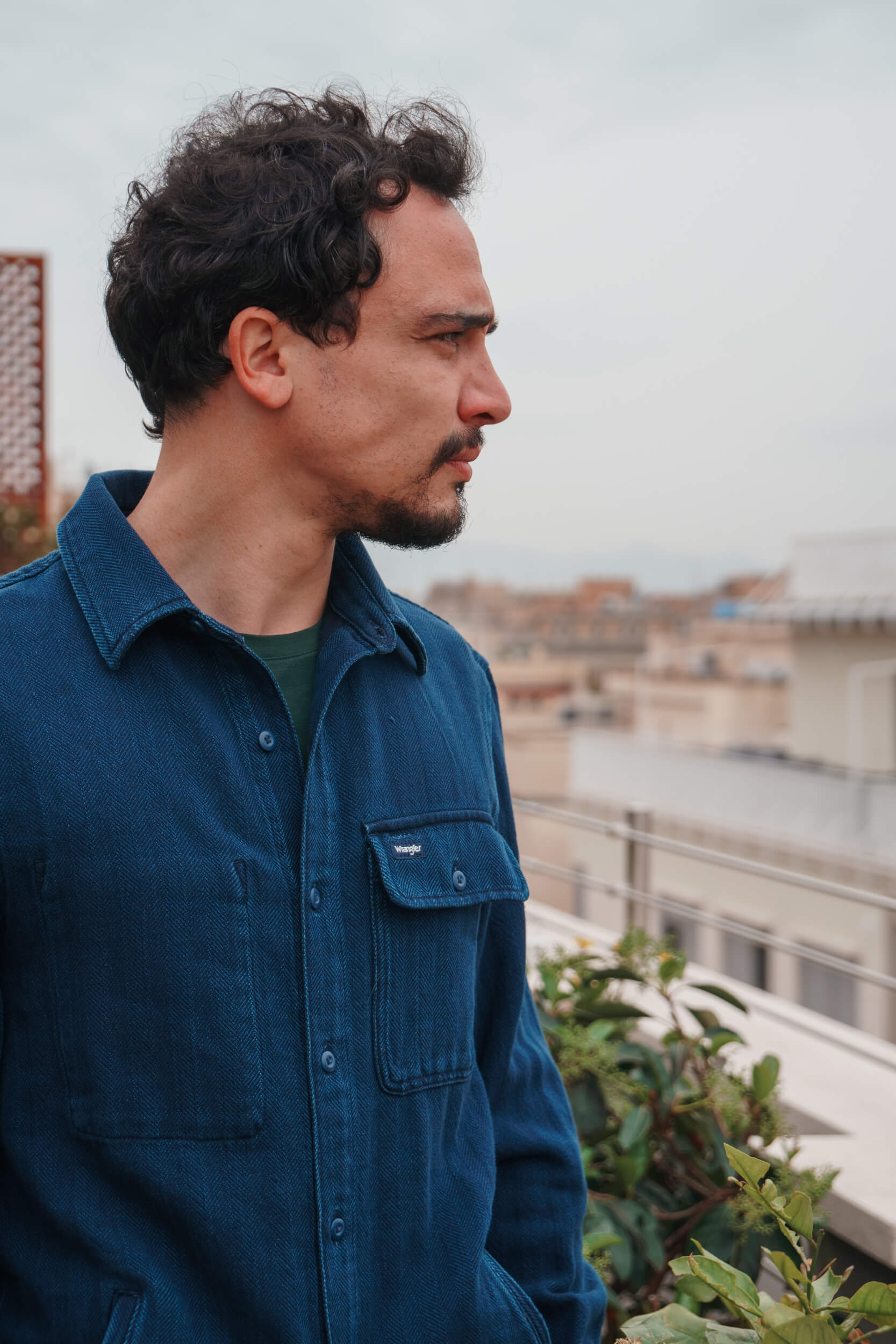
“…I think this story has the ability to talk to people’s hearts in this sense, and that’s the reason why I think that many people could relate to the characters and what we tell.”
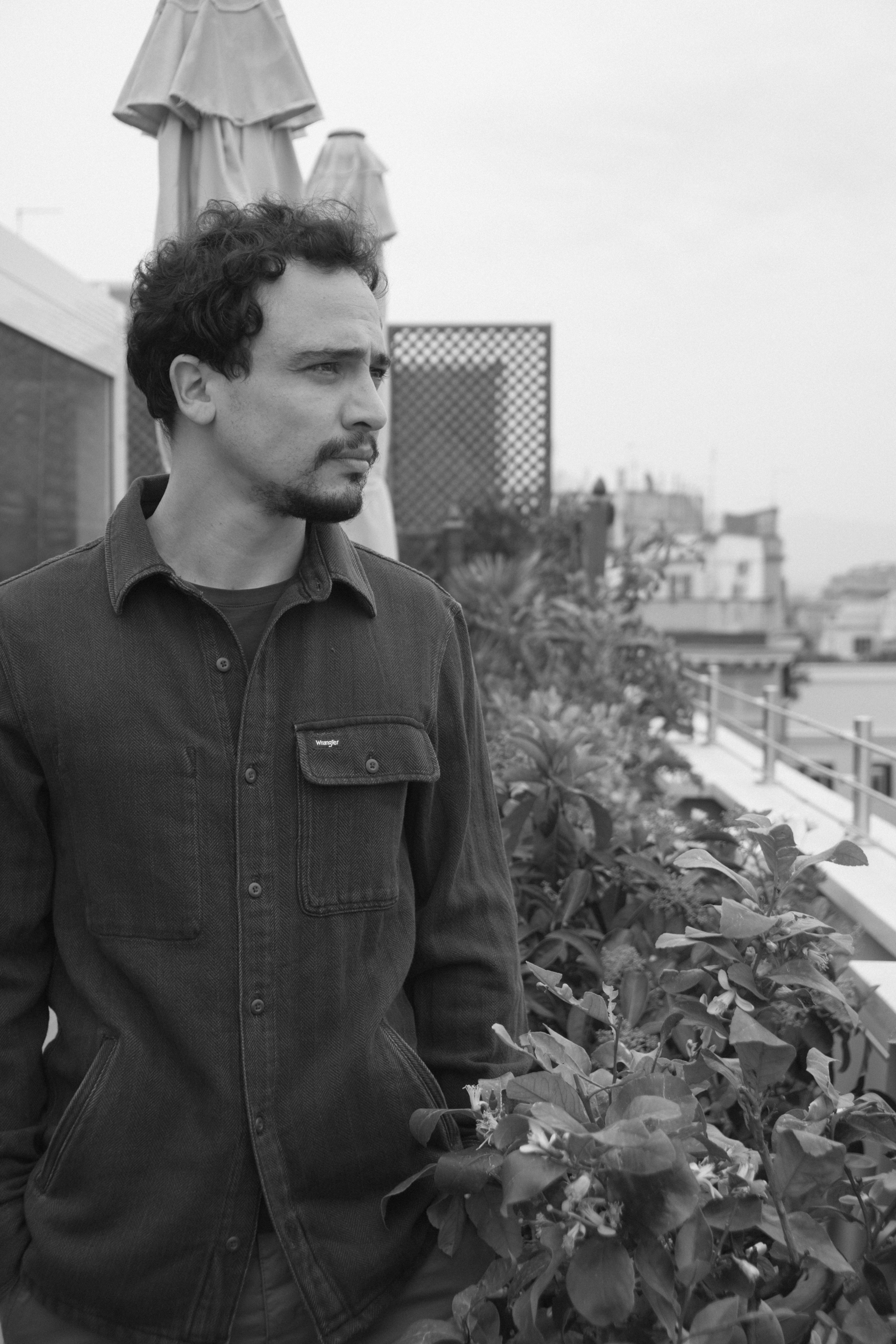
How would you describe “Chiamami Ancora Amore” in one word?
I don’t know if I can define it in one word, I would probably need to make a speech about the meaning that this TV series has to me. There would be so many words… We finally have a family story told with no frills, without having to sugarcoat things, the reality, telling with honesty how much, often, children change the relationship between the lovers who gave birth to them, and how important it is to tell this with sincerity, without hypocrisy, with no fear, and how complicated it is, too, for a woman, to decide to interrupt her pregnancy once she enters a bureaucratic circle made of transitions between offices, doctors, hospital, when this unnecessary calvary begins, which makes everything very complicated, it’s an impediment to a person’s legitimate choices. The series also tells that, maybe, to be able to become real parents, you need something more, being parents is more than a matter of blood, than having contributed with semen to your offspring, it’s more than this, it’s not limited to a matter of blood, descendants, it’s not just leaving a trace of you in the world, it’s quite different. I think that the series tries to tell all these things, so, eventually, maybe I’ve come up with a word, and it’s “sincere.”
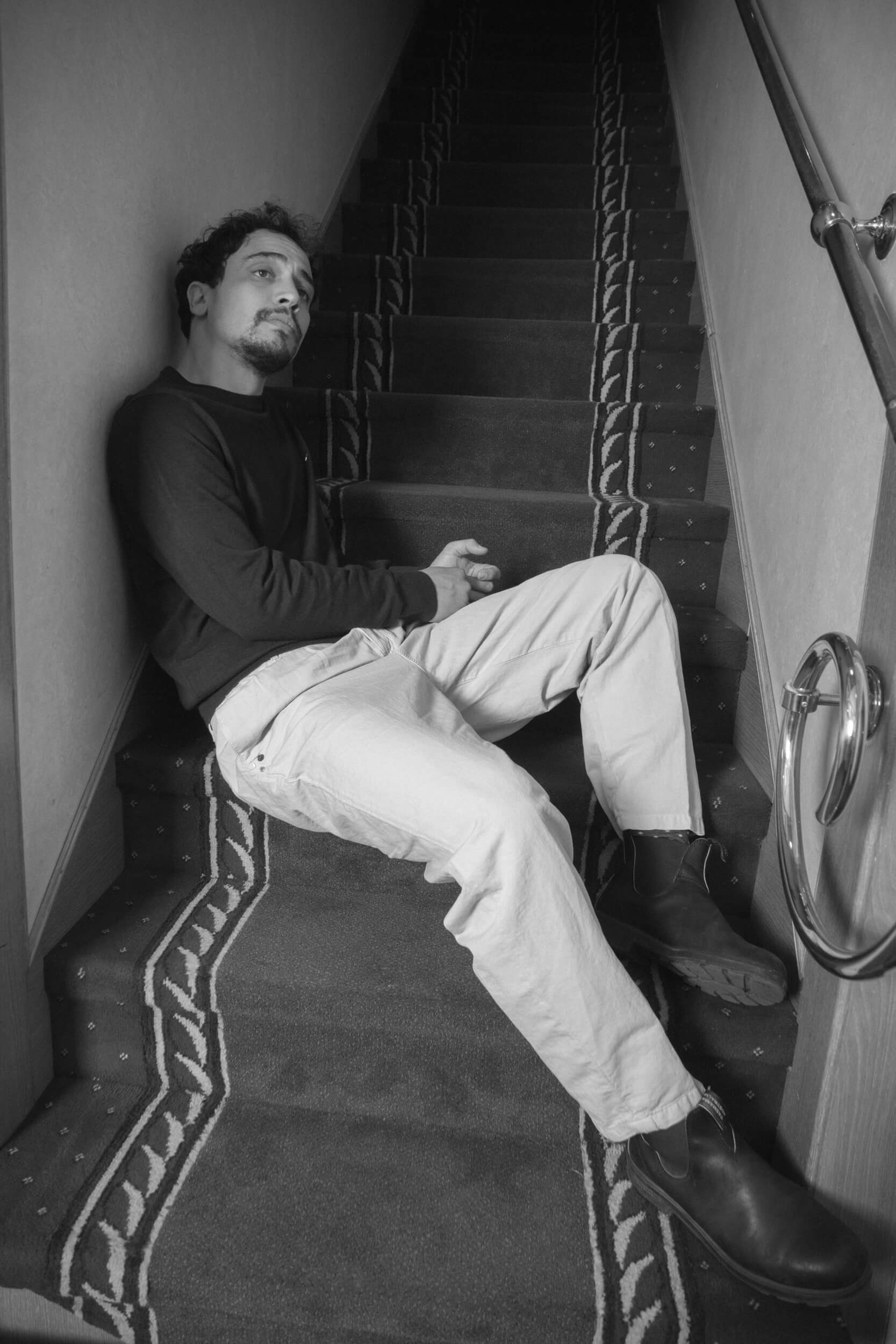
“BEING PARENTS IS MORE THAN A MATTER OF BLOOD, […] IT’S NOT JUST LEAVING A TRACE OF YOU IN THE WORLD, IT’S QUITE DIFFERENT.”
You work in cinema, television and theater. Which one is the world you feel like you belong the most to? And under what kind of spotlight do you feel “more comfortable”?
To be honest, I don’t think I have any preference, maybe I feel closer to cinema and television because I’ve been working with greater intensity, over the past few years, in those fields, so it’s obviously become much more usual as a way of working, to me.
TV series and long feature films: how does your approach to these two different kinds of productions change?
Nowadays, there’s actually little difference between cinema and TV series, maybe the only difference is that series last longer, so your work on the character endures over time, meaning that you get to work on a longer-term basis on your character. Perhaps, this is the only difference because, honestly, for us, it’s the same thing, we approach our job in the same way. There’s no distinction even between a movie set and a TV series set, everything is so identical that, to me, it makes absolutely no difference anymore.
Do you remember a sparkle – an event, experience, or maybe a person – that made you fall in love with cinema and realize it would have become your job?
I remember that my passion for cinema burst out when I was just a young boy and then, during my teenage years, it became stronger and stronger, for the rest of my life, I guess. Ever since middle and high school, cinema has become a constant presence in my life. I can’t really remember any sparkle, but I remember I loved and I still love stories, so I’ve always felt the need to tell them.
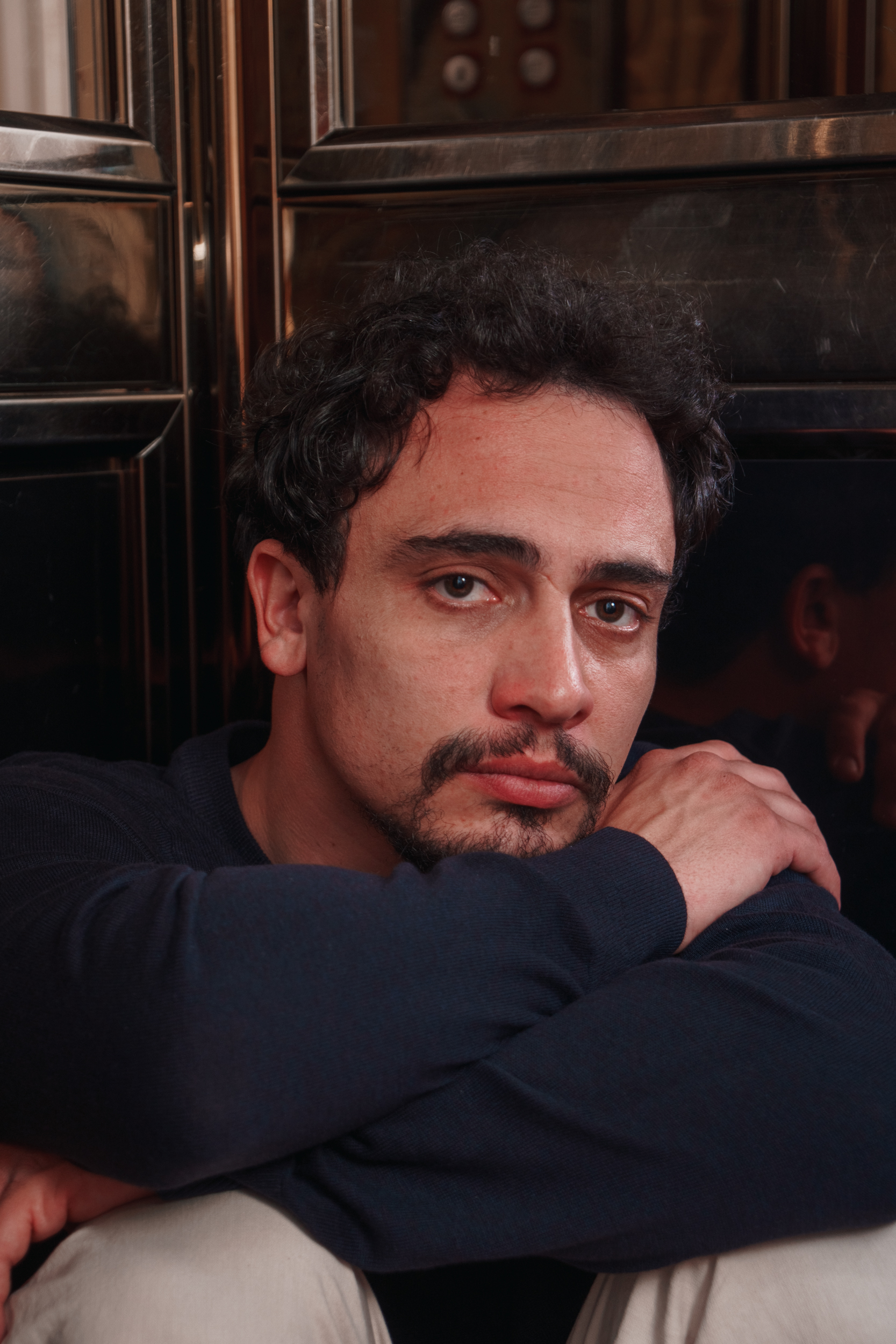
“I LOVED AND I STILL LOVE STORIES, SO I’VE ALWAYS FELT THE NEED TO TELL THEM.”
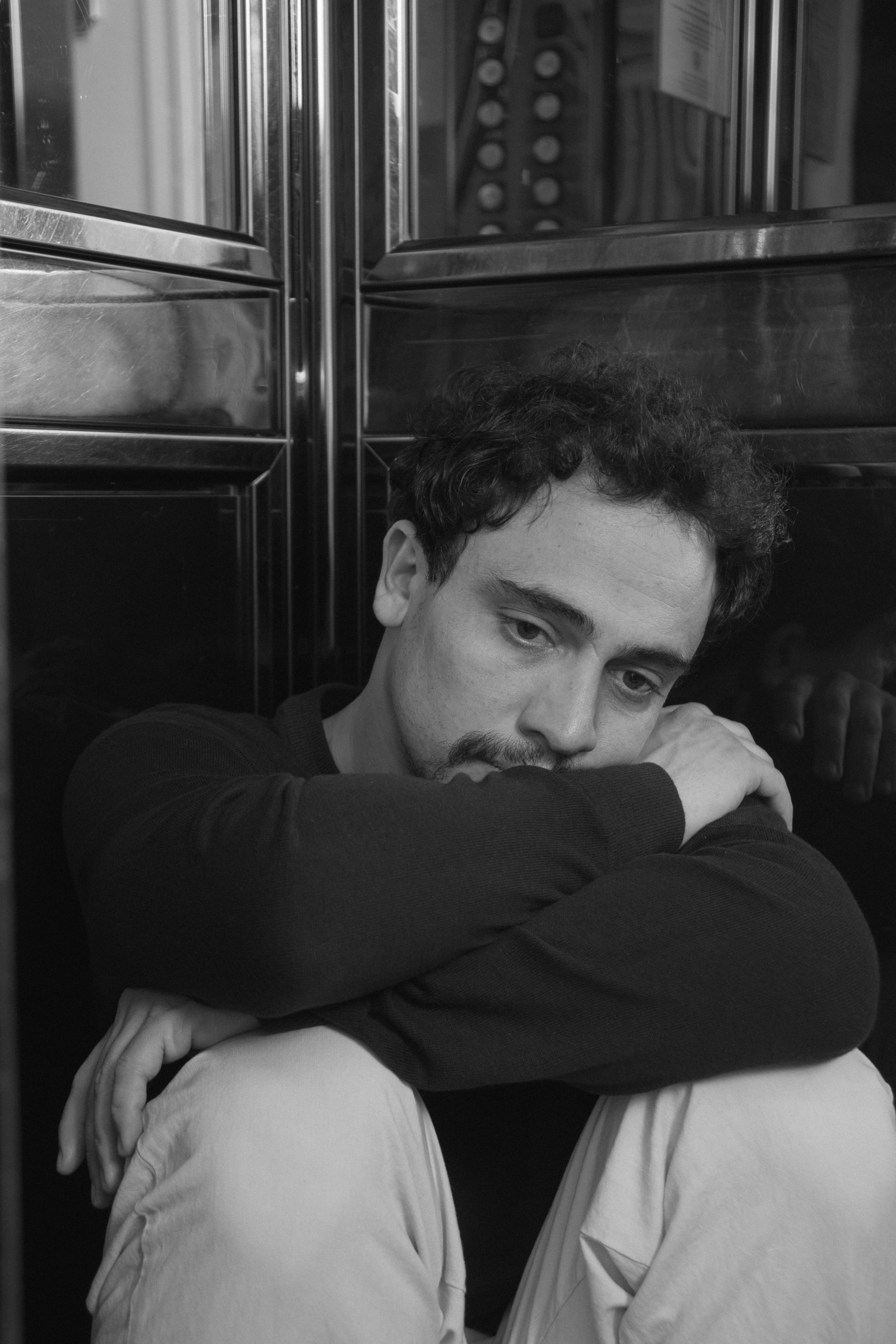
What’s the latest TV series you’ve watch and really enjoyed?
The latest TV series I’ve watched and really liked is a Turkish series, it’s called “Ethos,” I think its original title is “Bir Başkadır,” and Berkun Oya directed it: it’s a very beautiful show, very well-written and, above all, very well-performed. It’s the latest TV show I’ve watched and loved very much and it, too, investigates the nature of love, feelings and reason.
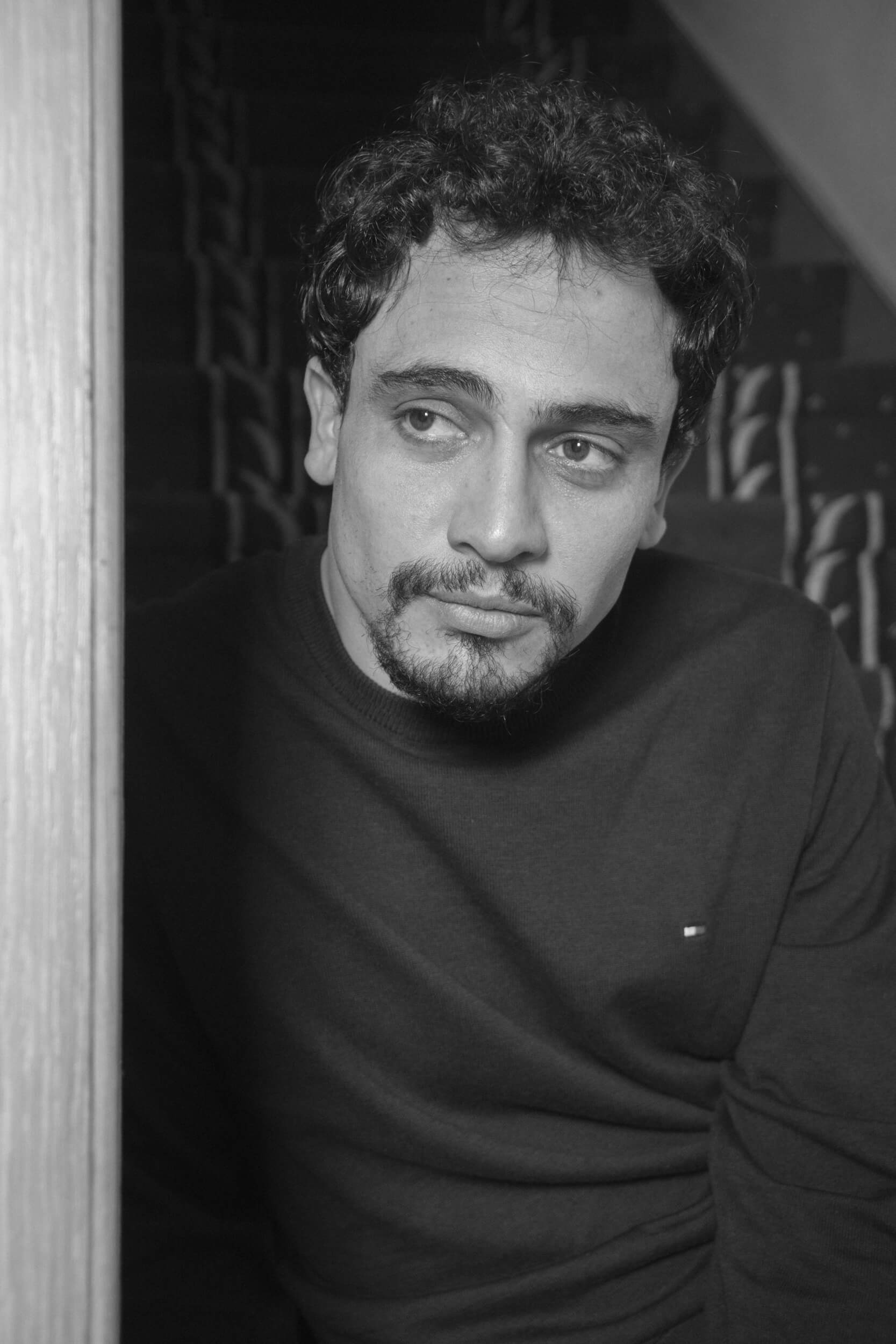
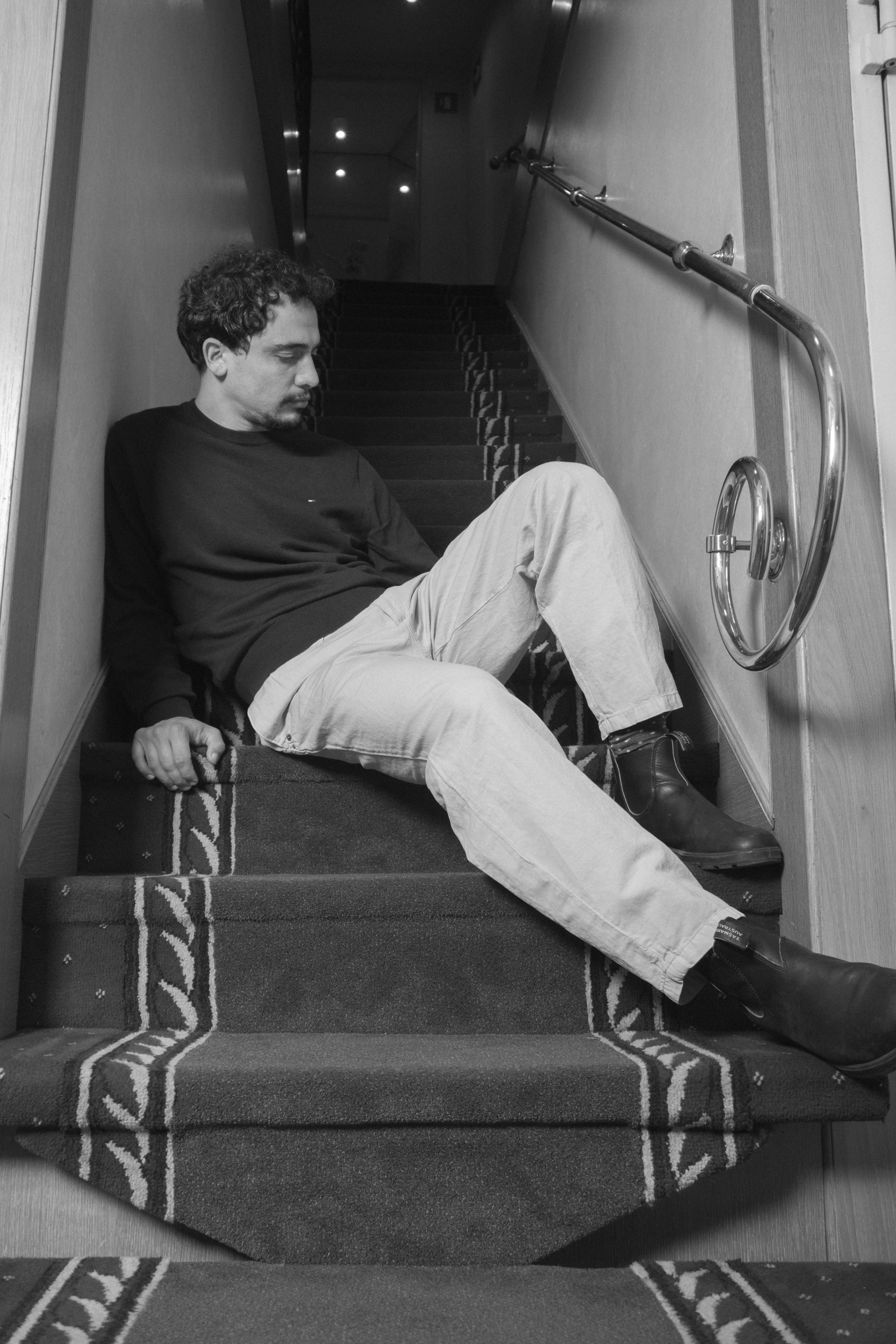
What was the first DVD you bought?
The first DVD I bought was “Out of Rosenheim,” even though I also had it on a videotape but, out of fear, since its tape was increasingly deteriorating, I remember that my number one urgency was to buy “Out of Rosenheim.”
A cinema or television character you would want to be friends with?
Someone, among many, whom I would have wanted to meet and get to know, is certainly Massimo Troisi.
Your dream collab?
I hope I get to work with Alfredo Castro, who’s a Chilean actor, while a director would maybe be Werner Herzog.
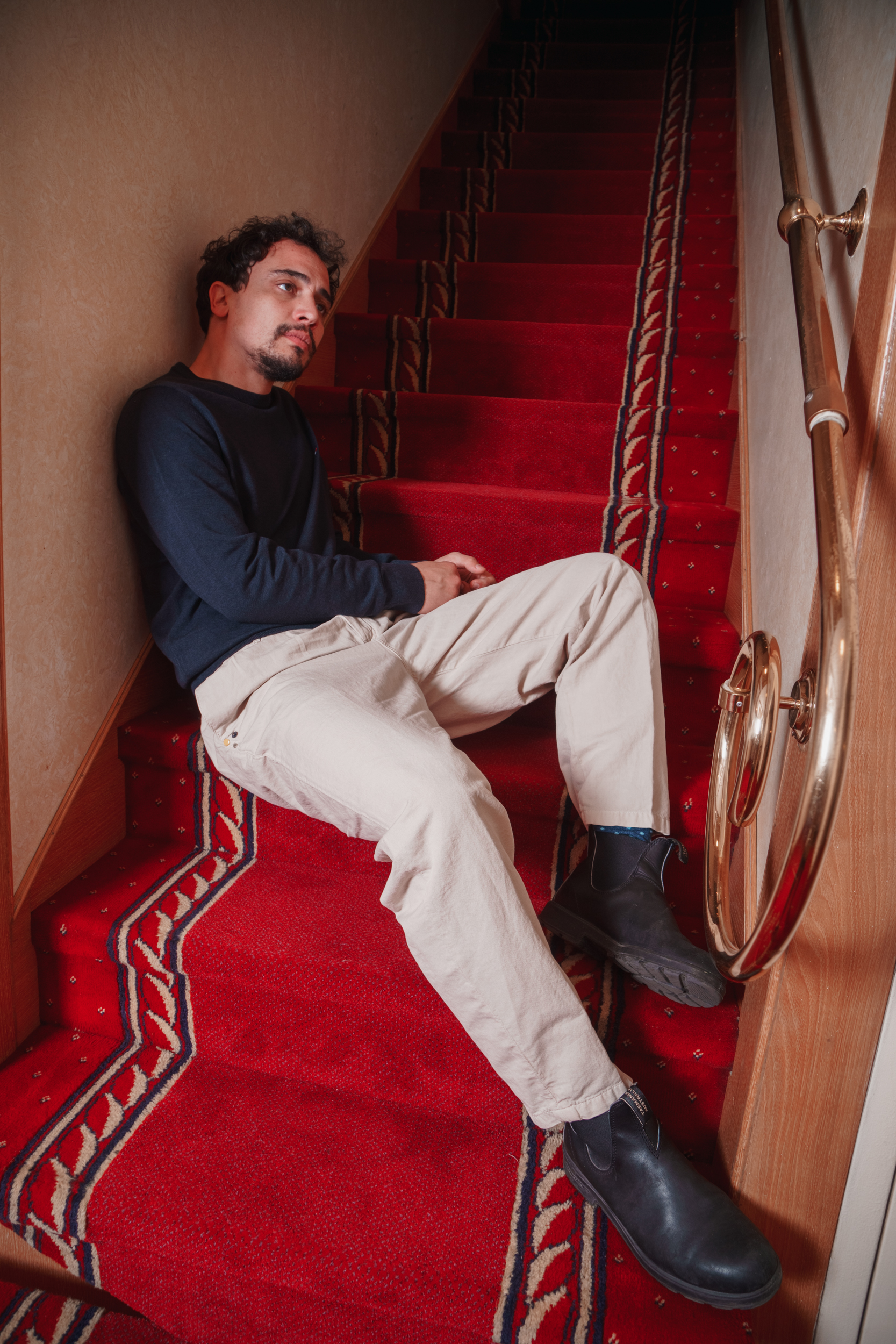
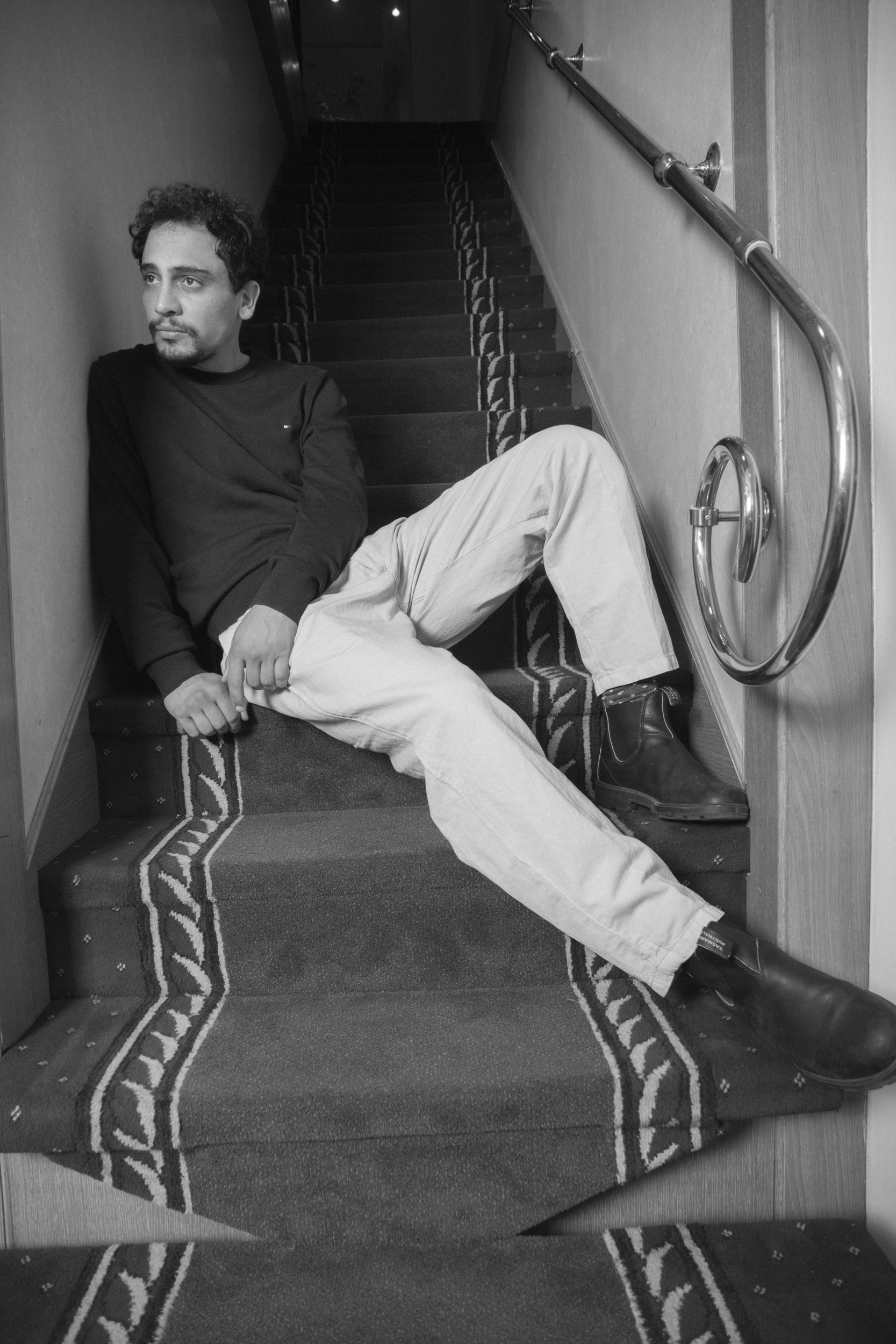
What stories do you dream to tell?
My dream is to tell stories that can always go further in the dramatic experimentation, that can narrate without frills, without sugarcoating, but with honesty, rawness, all facets of the human soul, of its nature, all the complications and tribulations that belong to us, the study of our weaknesses, fears, desires, of our fear to be so exposed to fate. In my opinion, to keep on wondering about these things is what humanity always does through dramaturgy, literature, and I think that pursuing this kind of study can be very interesting also because the study changes according to eras, so every era thinks in a different way. I hope I can tell, in this sense, stories that are actual, contemporary.
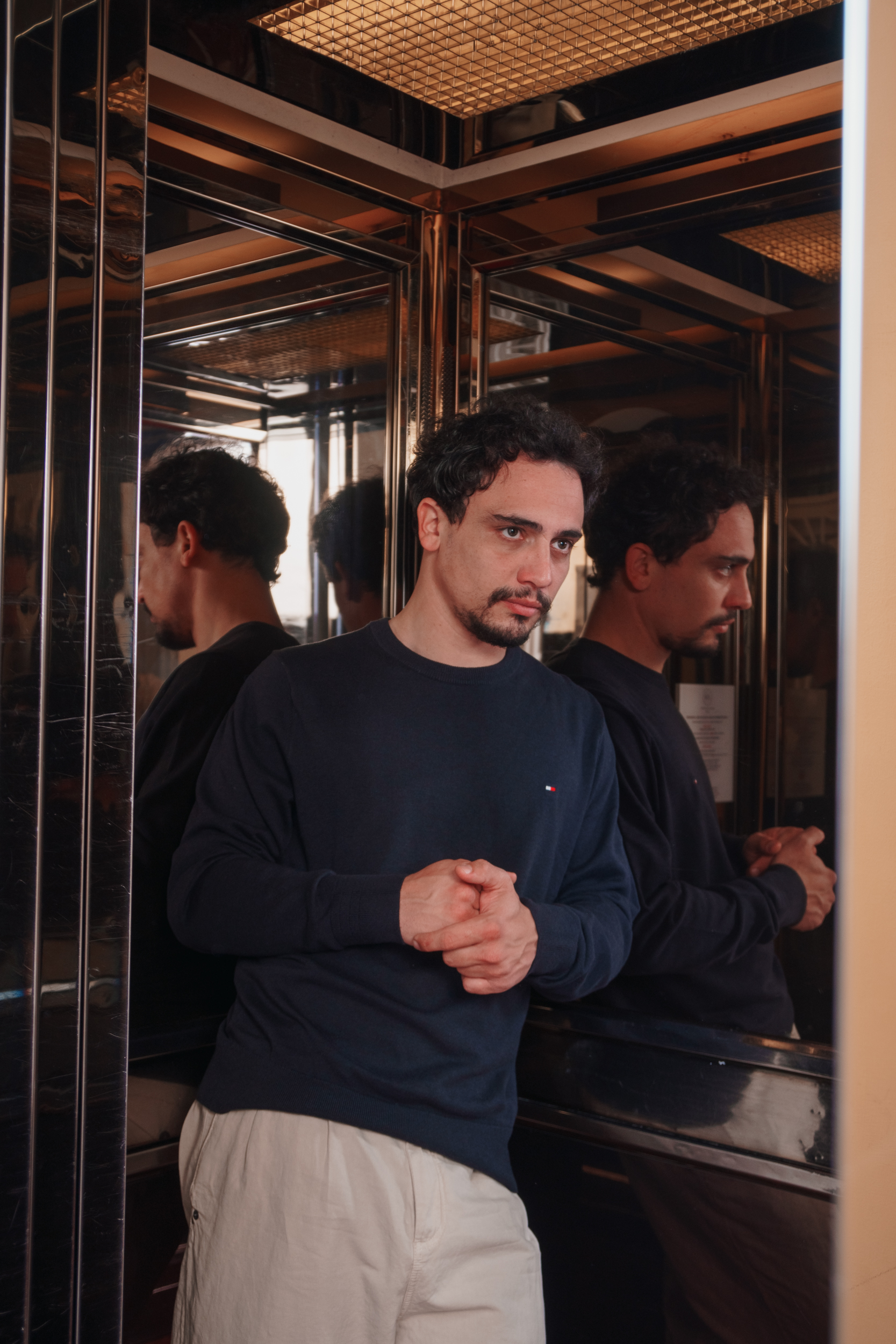
“…THE STUDY OF OUR WEAKNESSES, FEARS, DESIRES, OF OUR FEAR TO BE SO EXPOSED TO FATE.”
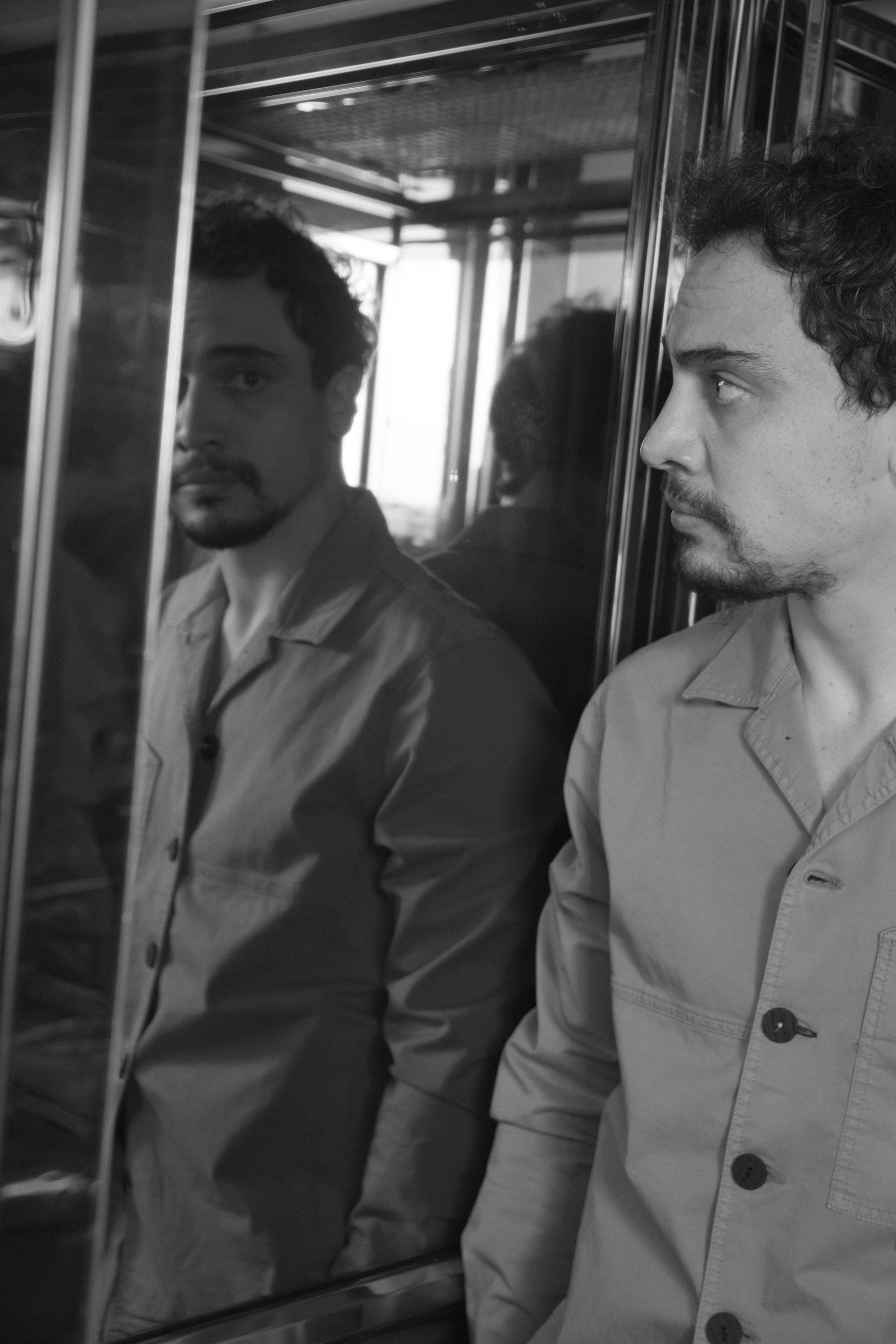
Your must-have on set?
I don’t really have any obsessions or rituals of this kind.
An epic fail on set?
An epic fail… It’s actually something quite humiliating to say, so… I don’t know [laughs].
You’re afraid of…?
I’m afraid of illness and death, and that’s all, I only have those two fears.
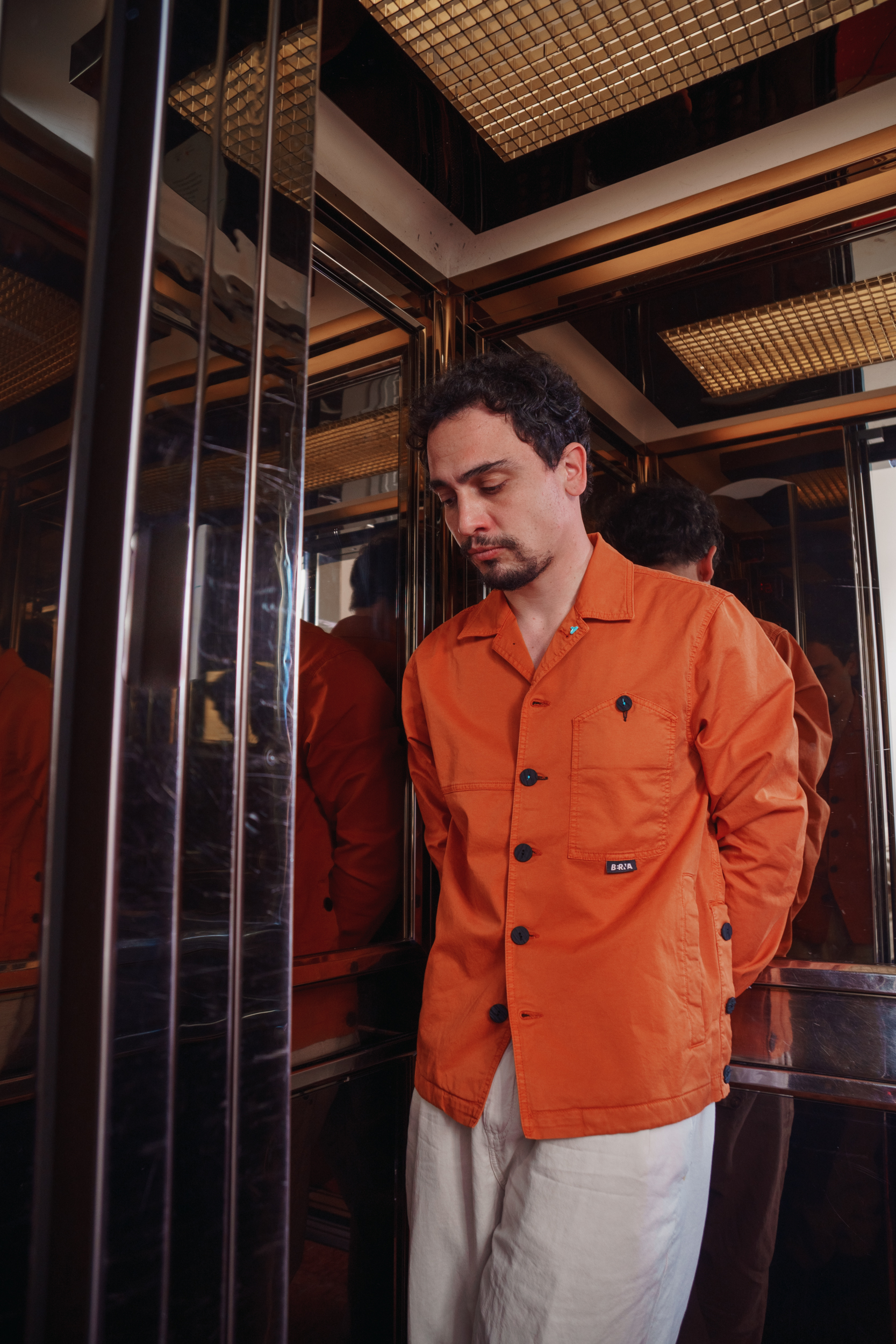
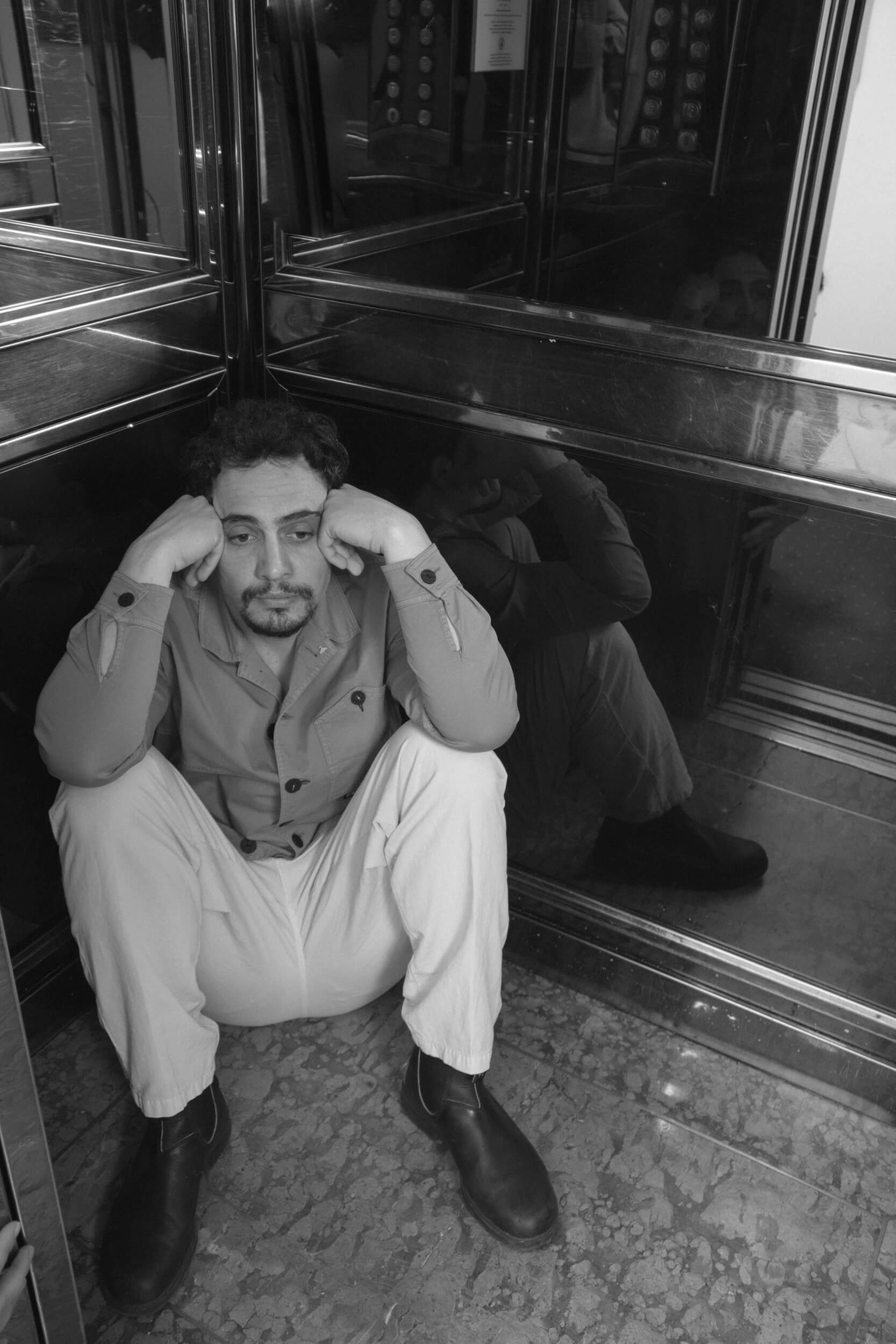
What’s the bravest thing you’ve ever done?
It’s really hard for me to identify something brave, an act of courage, among those I may have made, and by this I mean that it’s easier for me to identify my mistakes, while I find it really hard, if not impossible, to establish an act of bravery that I could easily reclaim, except for some stupid stunt I’ve pulled as a kid [laughs]. Besides those, the rest splits into moments in which I would have punched myself for the silly things I’d done, and other moments in which I can tolerate myself.
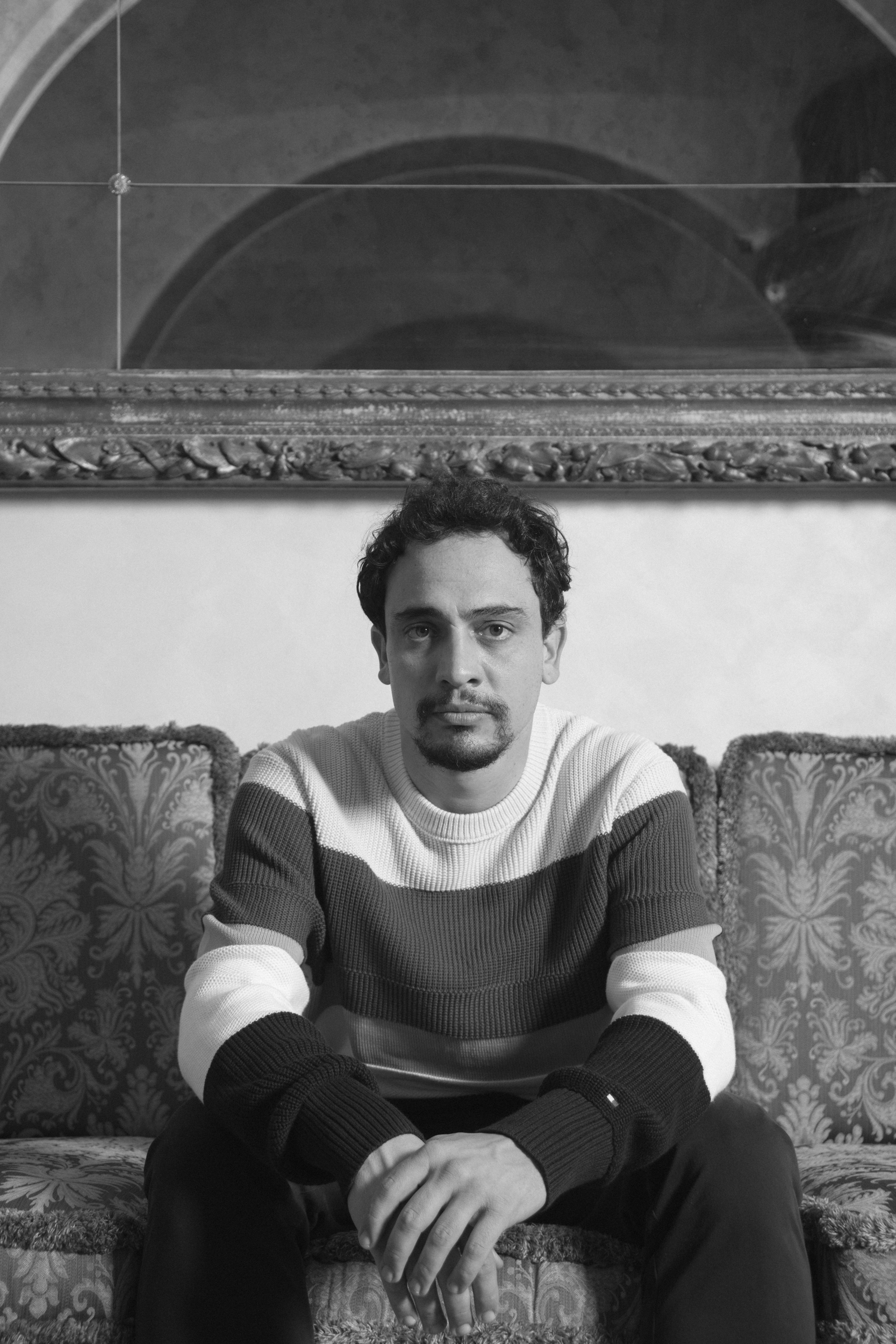
What’s your happy place?
My happy place is actually a place I can’t tell you about because, if I did, it would become public knowledge, while it should stay an open secret only for those who know it. I can only say it’s one specific place, surrounded by the woods of Castelli Romani, which are these high hills we have near Rome, and it’s the area in which I’ve been living forever, it’s a bit like my whole life’s scenario, where my whole life takes place, a landscape I’m really attached to, of course.
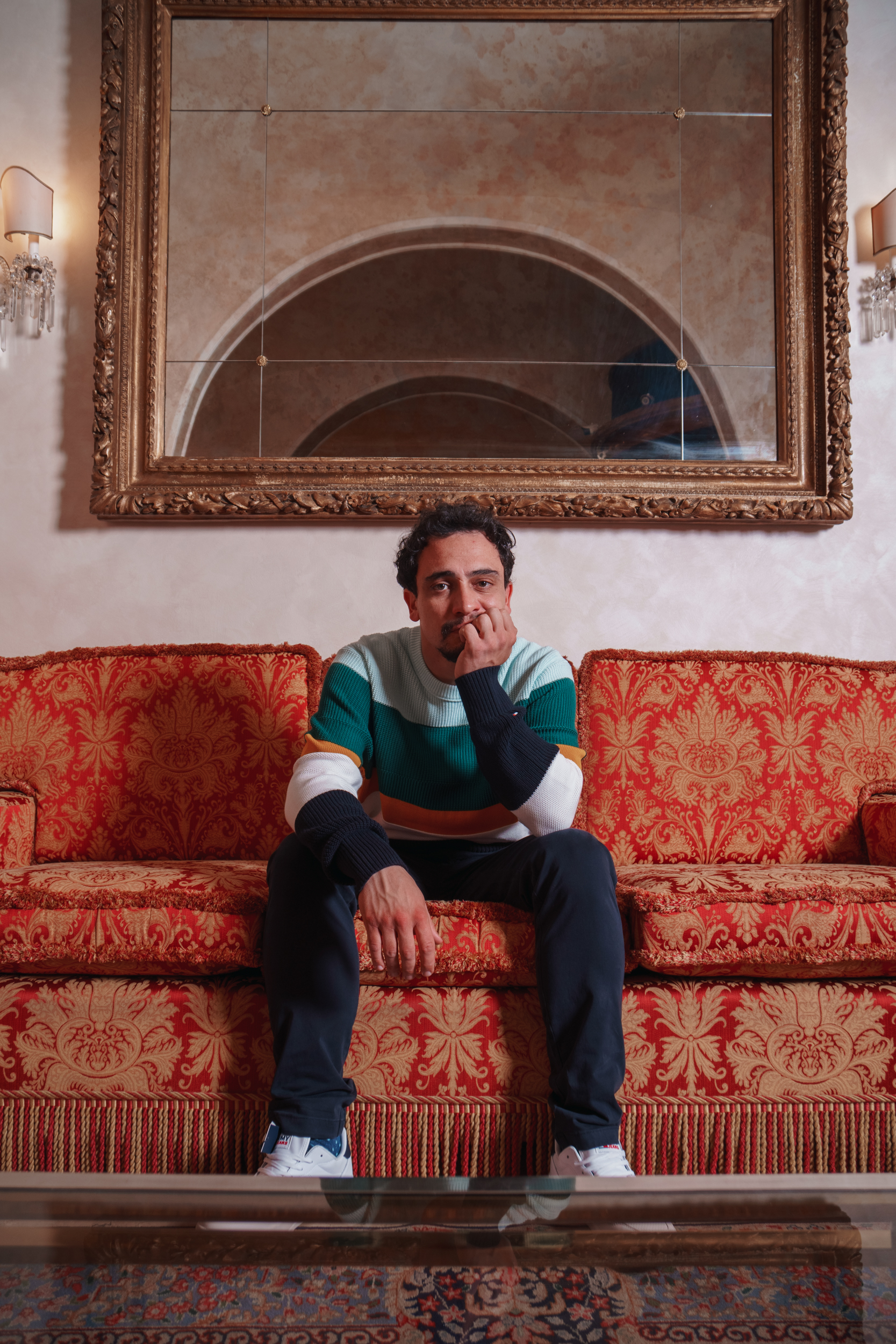
When I need to breathe and stop thinking and focus all my attention on leaves, butterflies, flowers, on the path so that I don’t lose myself, every time I feel the need to do this, that’s where I head to.
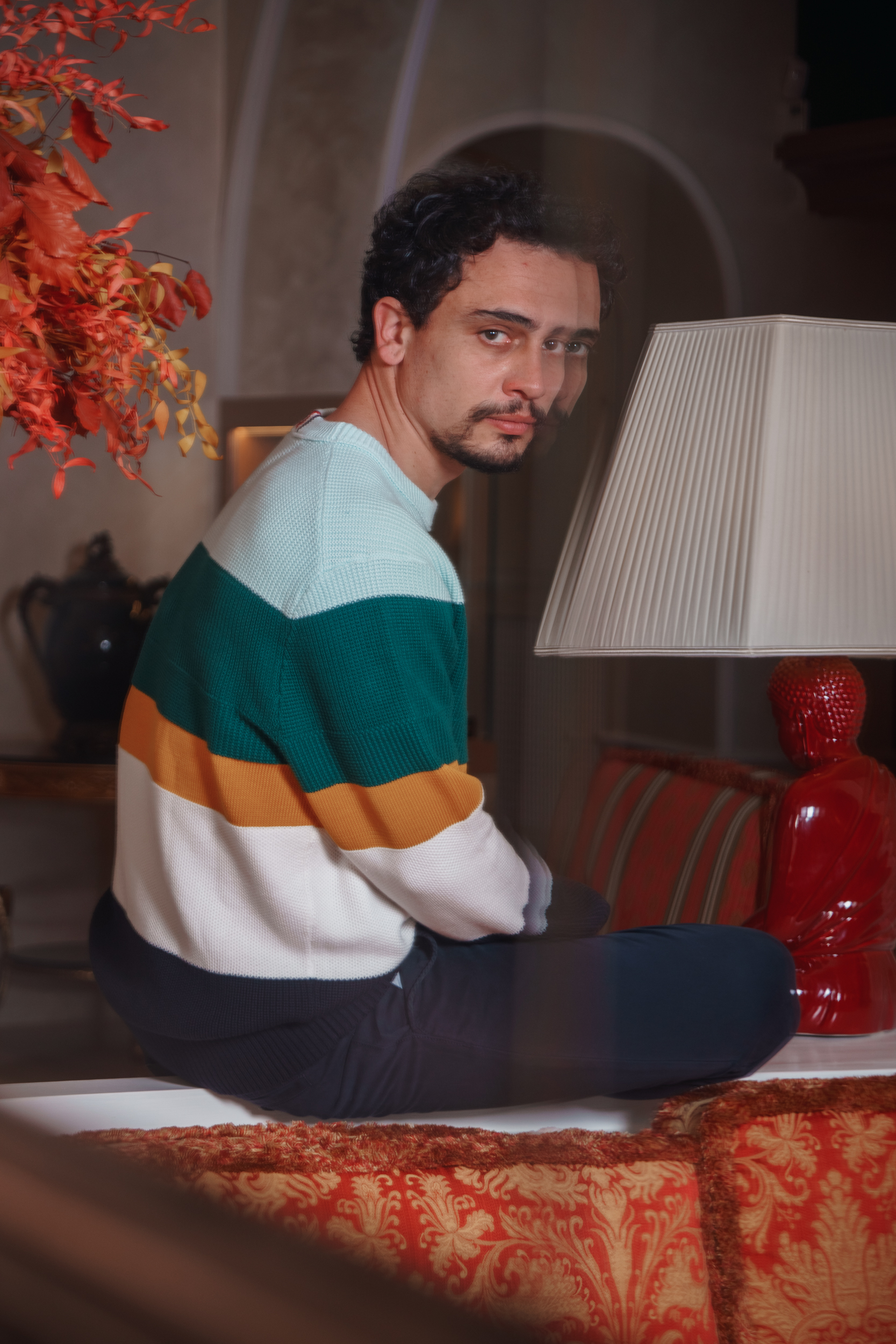
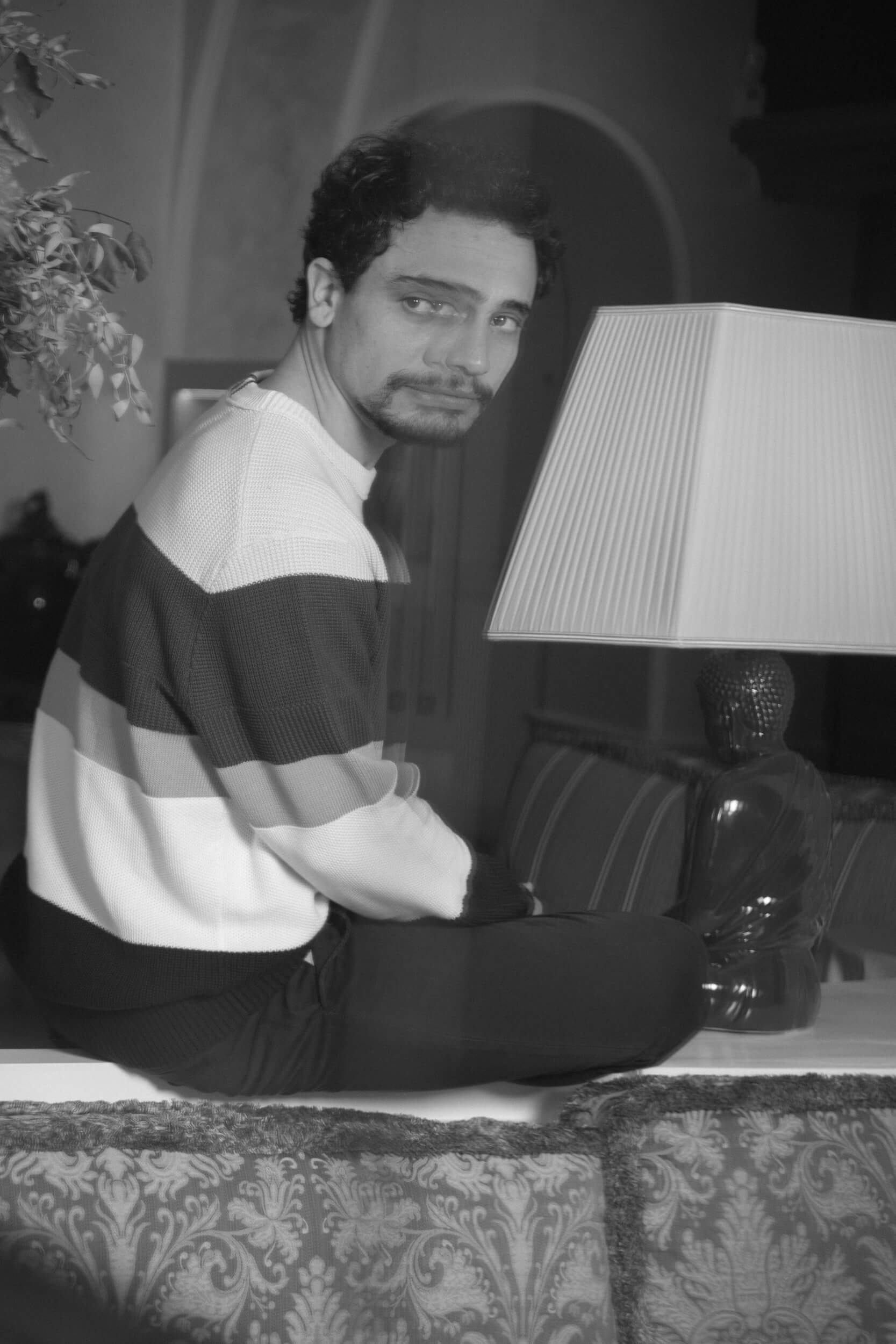
The latest thing you’ve discovered about yourself?
The latest thing I’ve understood is that, over time, I’ve always imagined I could improve myself, over the course of my life, with life and events going on; now I discover, instead, quite staggeringly, how, in the end, the person who faces the events of life is always a 15-year-old with his dream of cinema, someone with that same inclination to distraction, imagination, someone who’s still way too similar to that 15-year-old. To have remained, under certain aspects, so similar to the way I was back then, is something that baffles me a little bit.
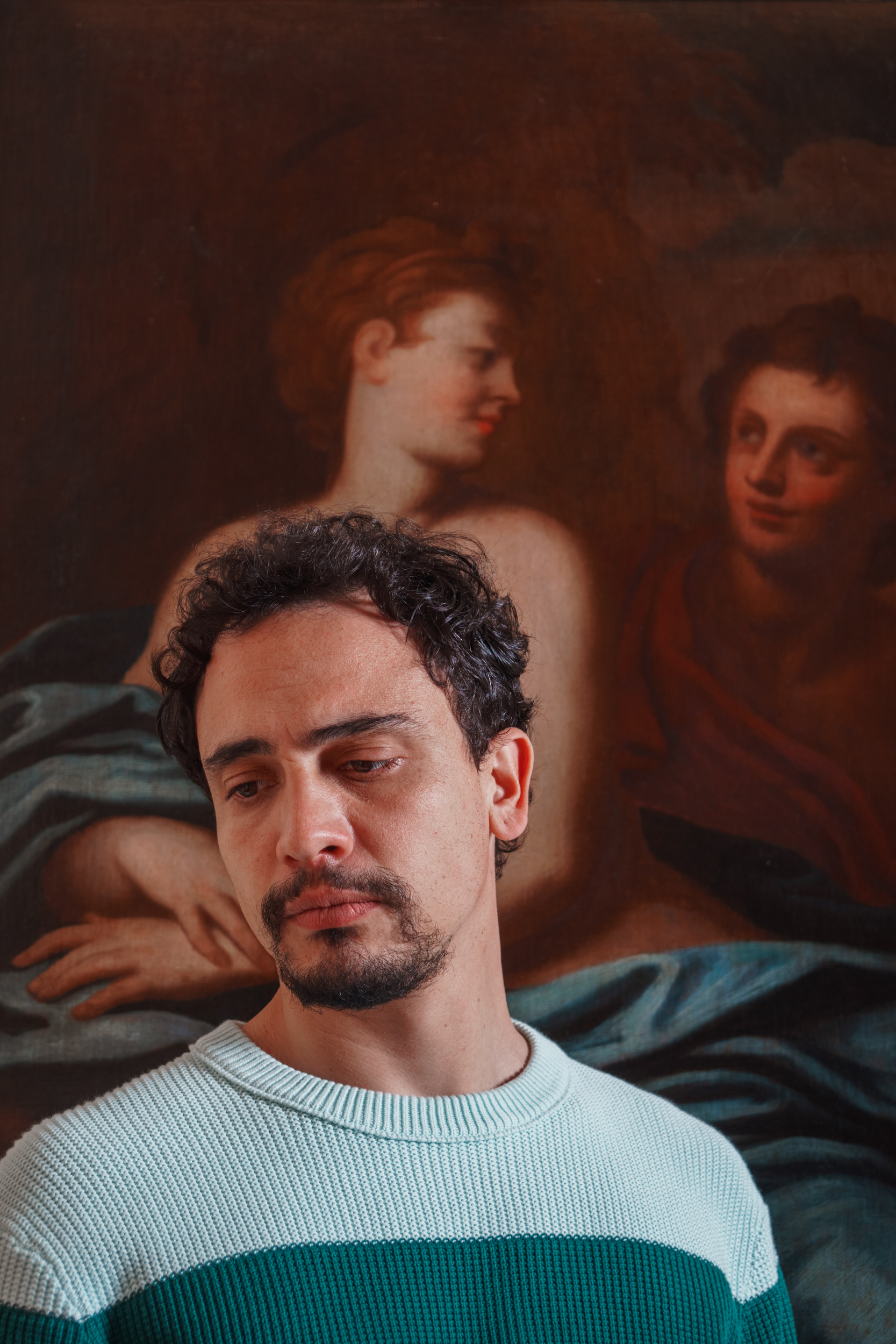
“A 15-YEAR-OLD WITH HIS DREAM OF CINEMA”
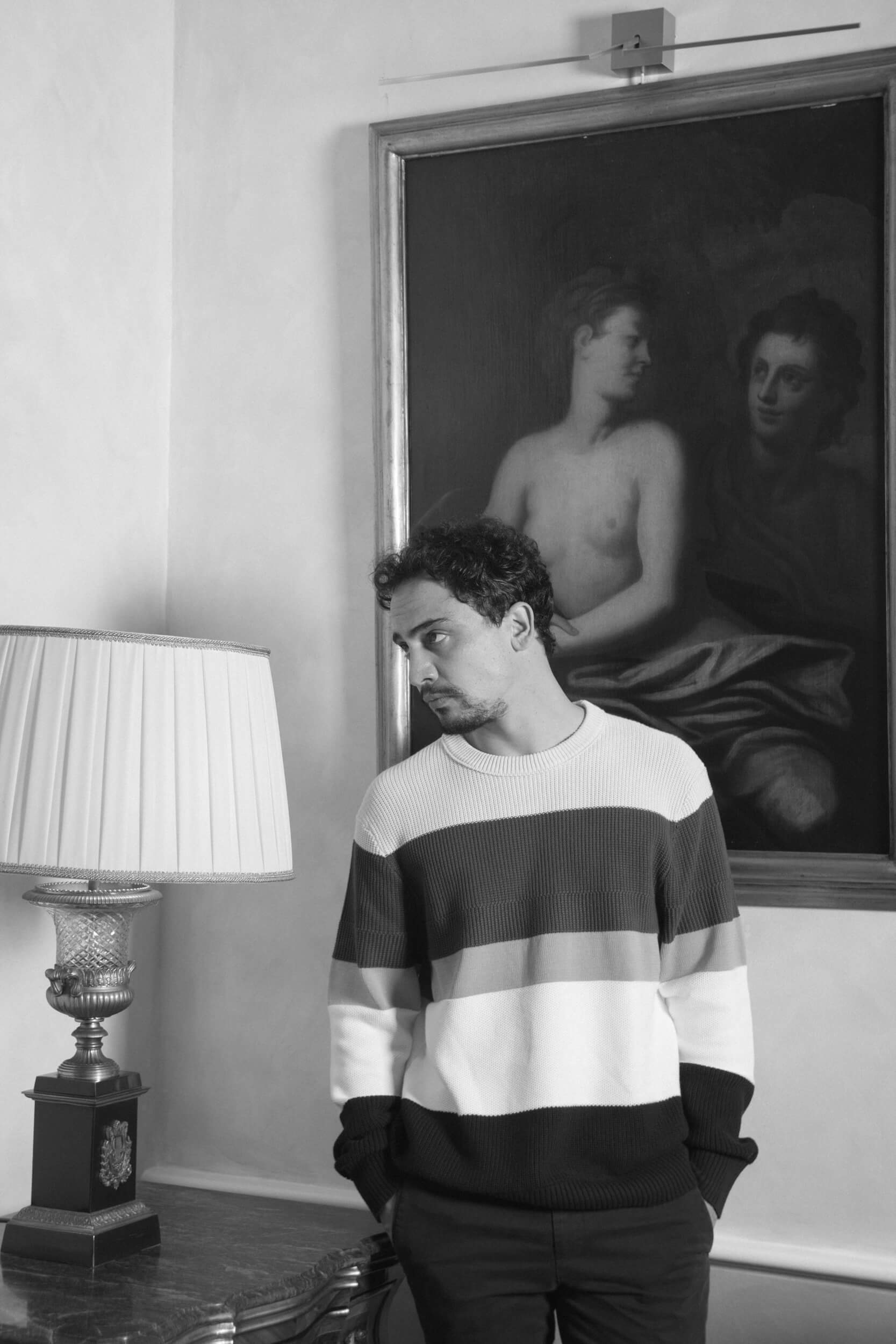
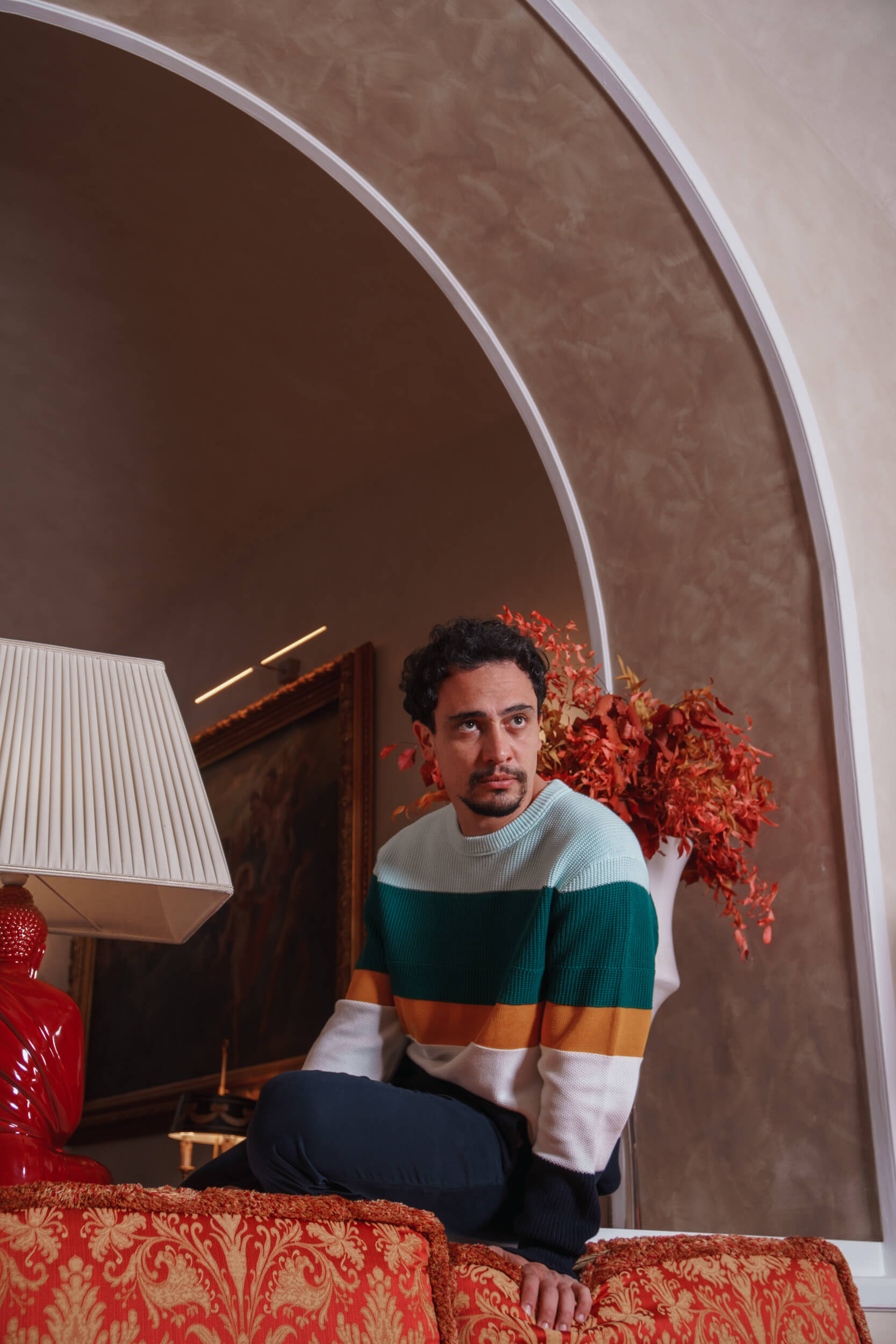
Any plans for the future?
I’m unable to imagine my future, I’ve stopped thinking about it for a few years now, I don’t remember how many years, but I’ve stopped thinking about it because, every time they ask me about that, I realize that, after all, I don’t ever think about my future, I never think about my personal future. Also because I don’t want to plan anything, I’d rather let things happen, mostly because, due to my job, fate and destiny come into play, so to try and plan things ahead would mean to impose your own will on the course of life, which is impossible because you always find yourself failing miserably.
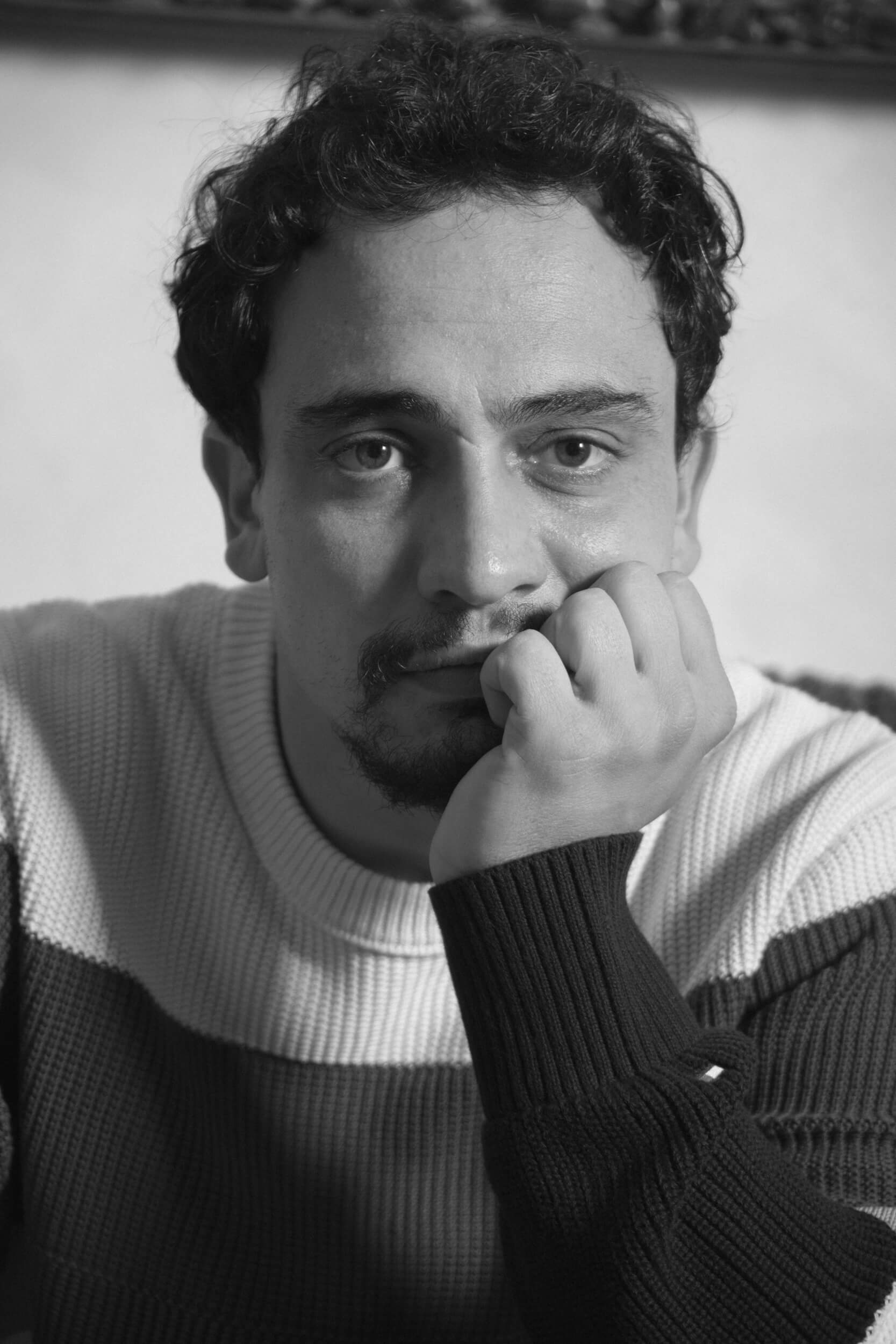
Photos by Johnny Carrano
Grooming by Maddalena Pasquini
Styling by Mirai Store
Thanks to Marcella Royal Hotel

